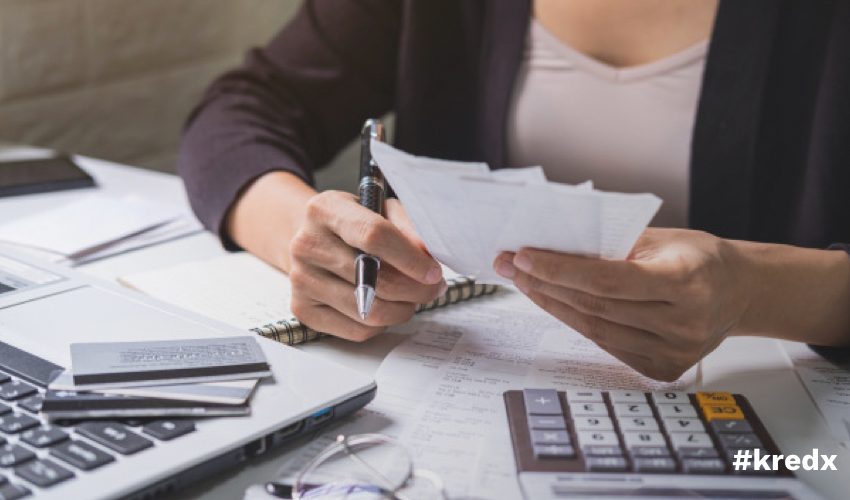
Is A Bill Same As An Invoice?
In the world of business, one can often notice that the terms “bills” and “invoices” are used interchangeably as both of these commercial documents contain details of a sale.
However, you must note that despite the various similarities between the two, they are not completely identical and are meant to fulfill different purposes.
Sounds interesting, right? Read on to know what are the distinct factors that make a bill different from an invoice and how these documents play a vital role in a business.
But, before explaining the differences between these two documents and their importance in the commercial world, it’s imperative that you are familiar with their definitions.
What Is An Invoice?
An invoice is a commercial document that businesses issue to their customers, outlining the details of a sale. It indicates that a buyer’s payment to the seller is due unless it has been paid in advance, as per the agreed terms. Usually, invoices follow a set template that consists of the following pieces of information:
- A unique number
- Place of supply
- Issue date
- Description of goods and services
- Due date
- Seller’s business or trading name, contact details, and address
- The word “invoice.”
- Customer’s contact details
- Quantity of goods
- Taxes (if applicable)
- Price
As per laws, there are specific rules concerning invoices. For example, businesses should number these documents and maintain sequential order. Moreover, one should not make any changes once a customer has received the invoice.
The primary purpose of issuing invoices is to request payment from customers at specific, predetermined dates. Sometimes, owing to the credit policies adopted by companies, they face issues concerning cash flow and don’t have the adequate working capital to finance day-to-day activities. To combat this issue and plug cash flow gaps, businesses can avail the services of integrated cash flow solutions providers.
What Is A Bill?
It is a financial document that outlines the amount customers owe to a business for making a purchase. Contrary to invoices, these documents do not follow a specific template and contain limited information, such as price and quantity of goods sold and taxes (if applicable). However, sometimes these documents may contain additional details, for example, table number at a restaurant. Bills are mainly used for payments that are made immediately, at one go. Moreover, these documents serve as proof of a transaction between a buyer and a seller.
Examples of bills:
Bills are commonly issued at restaurants, grocery stores, salons, departmental stores, etc.
After becoming familiar with both these concepts, you can understand how these two commercial documents are different from each other.
What Are The Differences Between A Bill And An Invoice?
Here is a tabular representation explaining the differentiating factors between bills and invoices:
| Basis of Comparison | Bill | Invoice |
| Reason for issuance | Bills are issued to customers to request payments that are supposed to be completed at one go. | Invoices are issued by a business to request payment from its customers at predetermined dates and conditions unless the payment has been made in advance. |
| Purpose | Bills primarily serve as proof of transactions between buyers and sellers. | Invoices are used for keeping track of the sale of goods, and services, tracking inventory, predicting future sales based on historical data. Besides these, invoices are primarily used by businesses to request payments from their customers and clients for providing goods and services. Moreover, invoices are used by businesses to record and keep track of taxation. |
| Extent of details | Details of a bill are usually limited to the value of purchase, quantity of goods, and taxes (if applicable). | Invoices consist of detailed information of a purchase, including issue date, invoice number, business name, place of supply, business address, description of goods and services, the number of products sold/purchased, etc.) |
| Receipt of goods and services | Customers receive goods and services immediately. | The customers receive goods and services at the date mentioned in an invoice. |
| Payment | Bills do not come with a due date. Hence, customers have to pay their bills immediately as the seller offers no credit period. | Invoices come with a due date. Customers make their payment within the predetermined credit period. |
| Common examples | Common examples of billing include restaurants, salons, shopping malls, departmental stores, restaurants, etc. | Invoicing is usually done by e-commerce companies, manufacturing businesses, large-scale retailers and other enterprises that sell goods on credit. |
Bottom Line
To sum it up, although a bill and an invoice might seem similar to each other, there are some key differences. It’s the key for every business owner to thoroughly understand these factors to keep their organisation’s finances in order.




